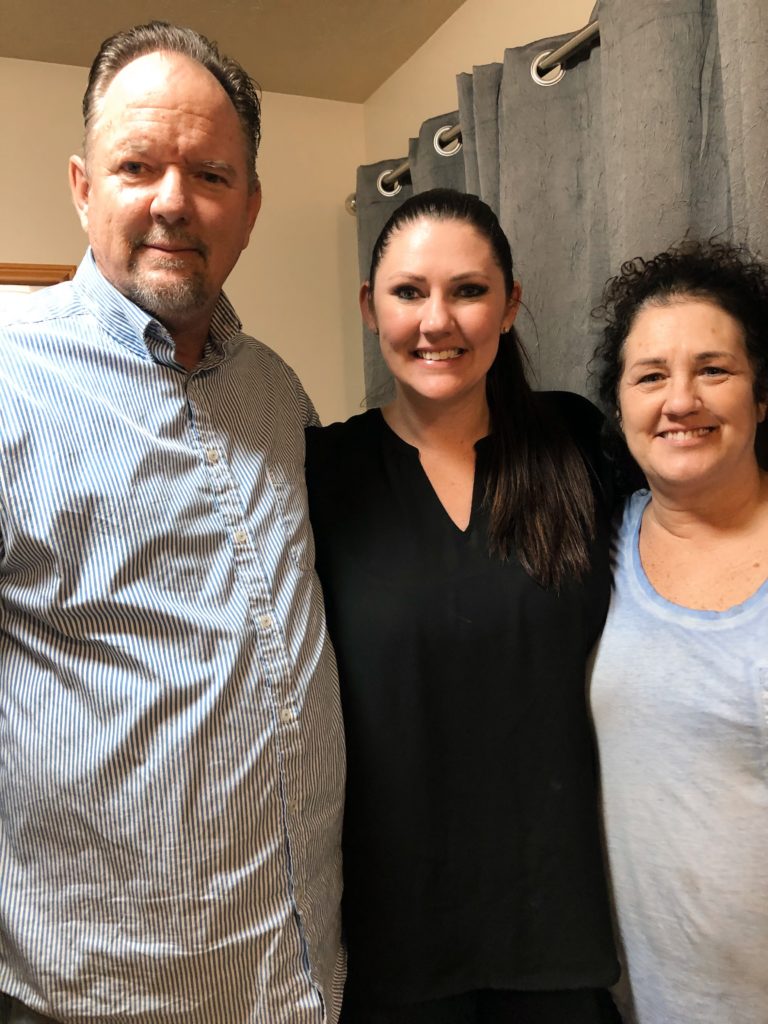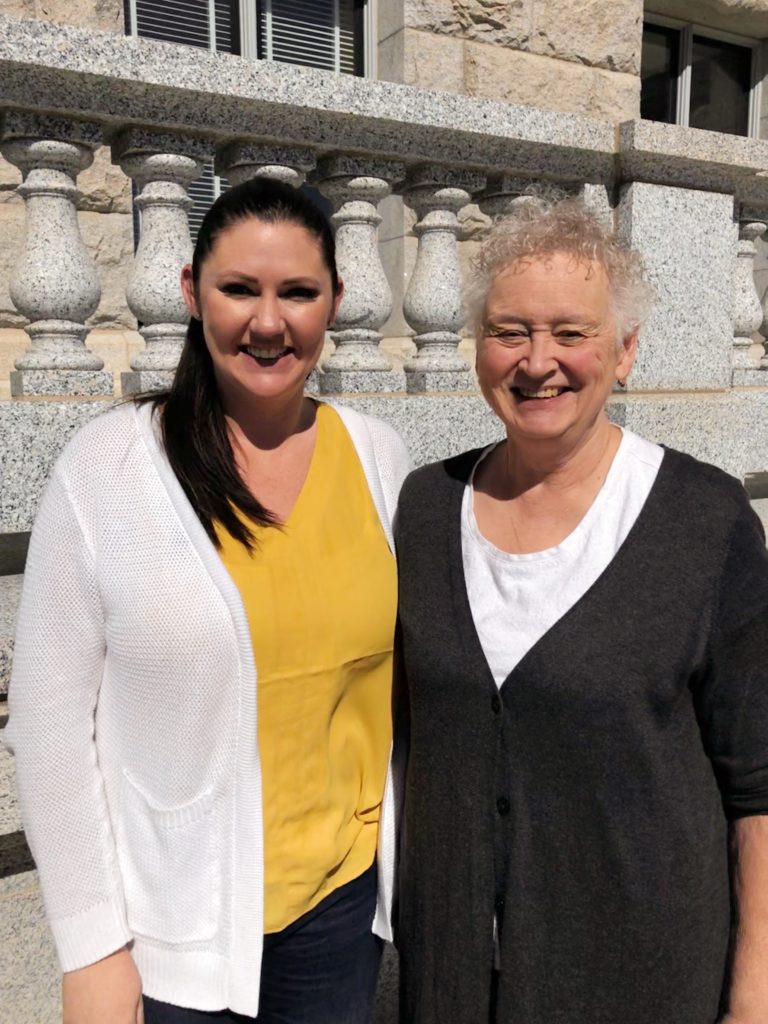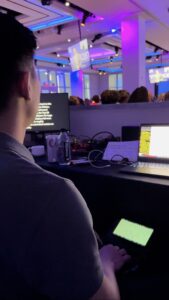
Heidi and Clark Gaudette
Phoebe Moorhead, RPR, CRR, recently had a unique captioning experience when her parents got to see the passage of a resolution about captioning thanks to her captions in the House of Representatives. She and her coworker, Cecilee Wilson, RDR, CRR, CRC, told the JCR Weekly more about it.
JCR | Where do you live and what is your position?
PM | I live in Ogden, Utah. I’m a freelance court reporter and captioner. I caption the live online stream of the Utah legislative general session for the House of Representatives every spring. This is our second year covering the legislature, and last year was the first year the session was captioned by an in-house captioner.
CW | I live in Kaysville, Utah. I own Captions West, Inc., a captioning company that was established in 1994. A year ago, Utah’s legislature began in-house captioning of their floor sessions for their 45-day legislative session, and Captions West received the contract. They liked our work and we came back this year.
JCR | What happened with the captioning resolution?
PM | [Utah] HR 3 was a House resolution brought by Rep. Dan Johnson encouraging the use of captions on televisions in public venues. It passed unanimously through the House.

CW | Rep. Dan Johnson, who sponsored the resolution, is in the office next to mine and knew that Phoebe and I do the captioning of the sessions, and we have chatted at times about captioning. Some of his constituents suggested he run this resolution, and he came up with an excellent bill that addresses the need of having captioning on in public places where captioning could be seen. Hopefully, this will expand education about captioning and expand the call for captioning in public places and in public venues. The resolution passed the House of Representatives, and the citation was read on the floor of the House. As it was only a House resolution, it did not go on to the Senate.
JCR | What is your personal connection to this bill?
PM | My parents are both deaf, and my first language was ASL. I learned to read from the captions on television. My father is a strong advocate for accessibility and captioning for the deaf and hard-of-hearing community in Utah. I knew the passage of this bill would mean a lot to him. The bill was put on the “time certain calendar,” which meant that we knew ahead of time when it would be debated on the house floor. I let my parents know what time it was scheduled for, and they went online to watch it. My parents were able to read the captioning, and we all celebrated together when it passed.
My parents are proud to tell anyone who will listen: “My daughter is a captioner.” Equal access through availability of captions is a subject my parents and I are passionate about, with me as the provider and them as the consumers. As the bill was being presented and my fingers were flying, I couldn’t help but feel an enormous amount of gratitude for the ability to do my job and for the impact my job has on the lives of my parents.











